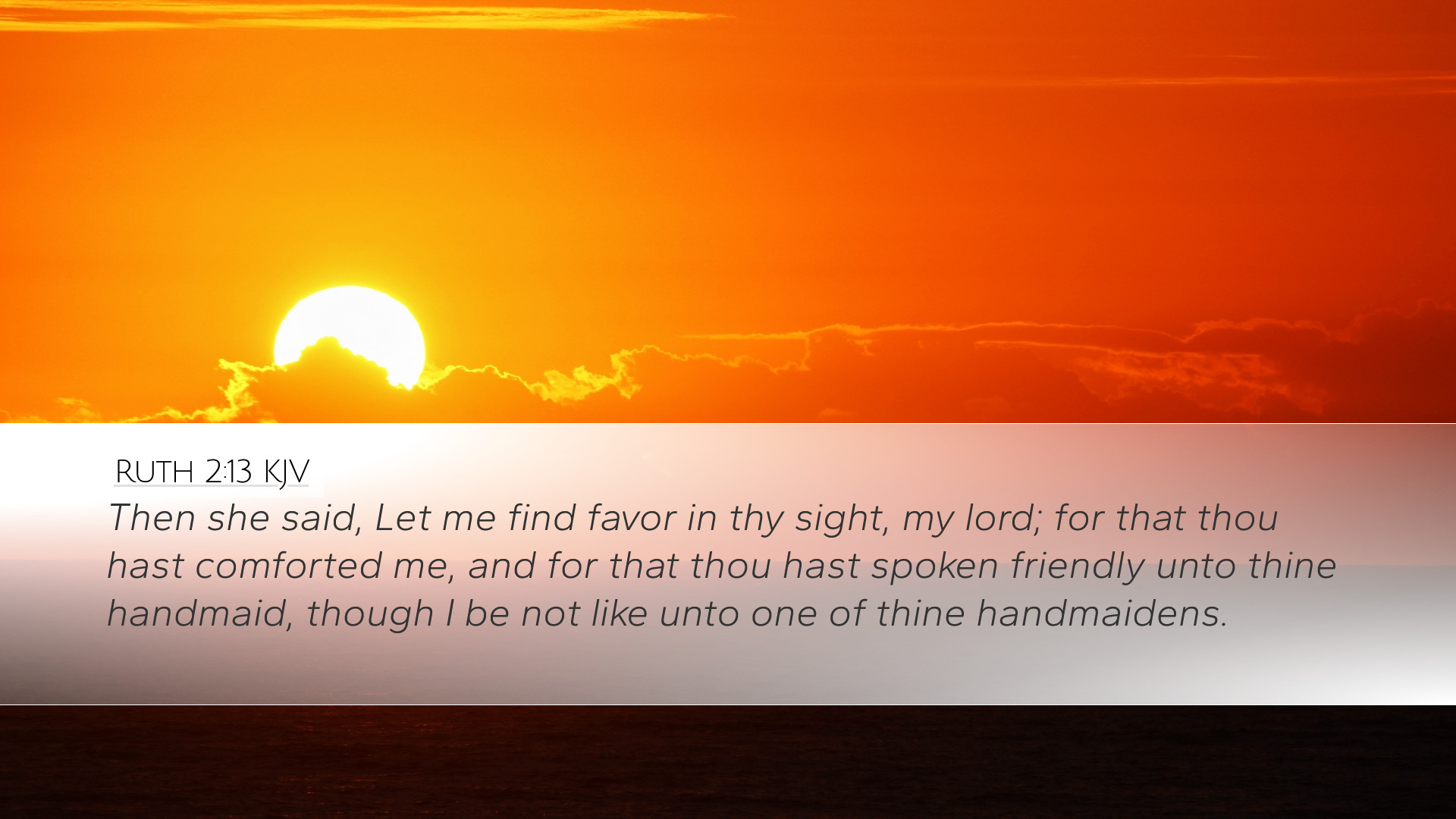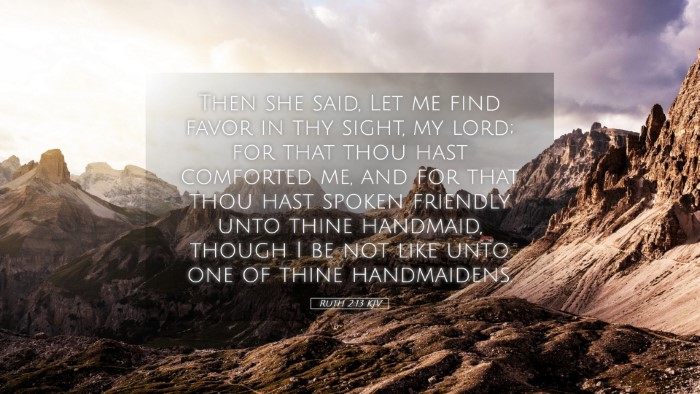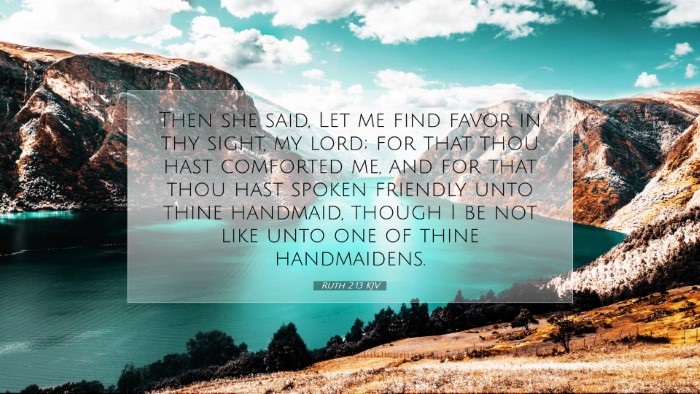Old Testament
Genesis Exodus Leviticus Numbers Deuteronomy Joshua Judges Ruth 1 Samuel 2 Samuel 1 Kings 2 Kings 1 Chronicles 2 Chronicles Ezra Nehemiah Esther Job Psalms Proverbs Ecclesiastes Song of Solomon Isaiah Jeremiah Lamentations Ezekiel Daniel Hosea Joel Amos Obadiah Jonah Micah Nahum Habakkuk Zephaniah Haggai Zechariah MalachiRuth 2:13
Ruth 2:13 KJV
Then she said, Let me find favor in thy sight, my lord; for that thou hast comforted me, and for that thou hast spoken friendly unto thine handmaid, though I be not like unto one of thine handmaidens.
Ruth 2:13 Bible Commentary
Bible Commentary on Ruth 2:13
Verse: "Then she said, ‘Let me find favor in your sight, my Lord, for you have comforted me and spoken kindly to your servant, though I am not one of your servants.’" (Ruth 2:13, ESV)
Introduction
The book of Ruth is a profound narrative that emphasizes God's providence, loyalty, and the tender relationships between its characters. In Ruth 2:13, we see Ruth expressing her gratitude towards Boaz, a figure of kindness and benevolent providence. This verse encapsulates themes of humility, grace, and redemption which are pivotal for understanding the text in its entirety.
Commentary on the Text
Boaz’s Kindness
Matthew Henry notes that Boaz’s graciousness towards Ruth highlights the importance of being compassionate and generous, especially to those in need. His treatment of Ruth serves as an example of how we ought to treat others, regardless of their social status. Boaz recognizes Ruth's dedication to Naomi and is moved to extend kindness to her, marking him as a man of integrity and virtue.
Ruth’s Response
Albert Barnes emphasizes Ruth's humility in her request, "Let me find favor in your sight." This plea reflects her awareness of her position as a Moabite widow and highlights the cultural and social boundaries of the time. Ruth’s acknowledgment of her lowly status before Boaz illustrates her humility and gratitude—a central theme throughout her character arc in the book. Her self-identification as "not one of your servants" signals her understanding of both her outsider status and her reliance on Boaz’s goodwill.
Theological Interpretation
From a theological perspective, Adam Clarke interprets this verse as a significant moment of grace. Ruth’s recognition that she does not belong to Boaz's household reflects broader biblical themes regarding outsiders being welcomed into the fold of God’s people. Clarke posits that this interaction symbolizes the inclusivity of God’s grace, which extends beyond ethnic and social boundaries.
Implications for Believers
- God’s Providence: The verse illustrates how God orchestrates encounters and relationships for the purpose of redemption. Believers can take comfort in knowing that God is actively involved in the intimate details of their lives.
- Humility and Gratitude: Ruth’s call for favor serves as a lesson in humility. For pastors and theologians, it sets an example that gratitude should characterize our responses to acts of kindness, calling us to cultivate a spirit of thankfulness.
- Inclusivity of the Gospel: Ruth’s story exemplifies the message of inclusion found in the Gospel. It invites reflection on how the church can be a welcoming space for individuals from all backgrounds.
Application for Pastors and Leaders
For pastors and spiritual leaders, this passage can be a focal point for sermons focusing on themes of kindness, humility, and the transformative power of grace. Matthew Henry suggests that leaders should strive to emulate Boaz’s character—being generous in support of those who are less fortunate and actively seeking ways to uplift them through tangible acts of kindness.
Conclusion
Ruth 2:13 remains a powerful reminder of the dynamics of divine grace and human interaction. As Ruth finds favor in Boaz's eyes, we too are called to recognize the favor we find in God's eyes through Christ. This beautiful exchange exemplifies the relationship that exists between gratitude, humility, and the grace that we are extended. The insights provided by Matthews, Barnes, and Clarke contextualize this moment in Ruth's life, enriching our understanding of both the text itself and its broader implications for faith and community.


